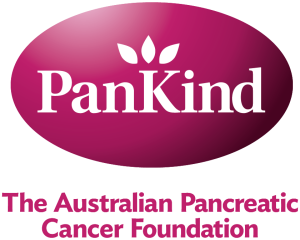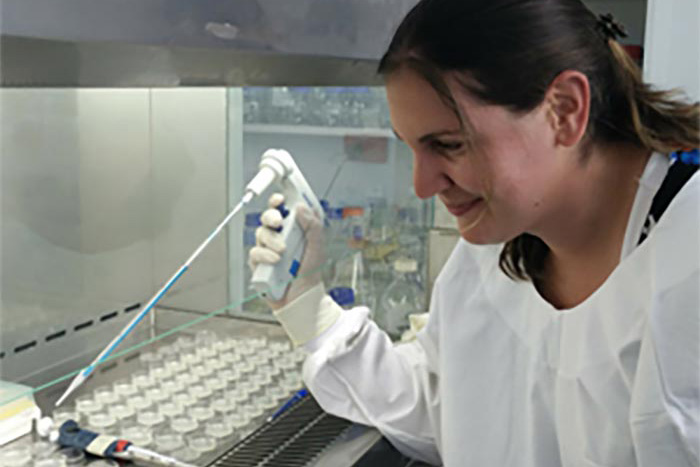Causes & Risk Factors

What causes pancreatic cancer?
Causes of pancreatic cancer are due to complex changes in your genes, that have arisen over time or may be rarely inherited. Such changes lead to cancer cells growing, dividing and even spreading to the bloodstream and other parts of the body in a way that is unregulated by the body.
Whilst the exact causes of pancreatic cancer are not well understood, there are some risk factors, relating to lifestyle, the environment, genetics and other medical conditions that have been identified.
Risk factors
Risk factors are anything that increases the chance you may get a disease such as pancreatic cancer. It doesn’t mean that everyone who has these risk factors will get pancreatic cancer, or that everyone who gets pancreatic cancer has one or more of these.
Some risk factors such as smoking and alcohol consumption can be prevented. But other risk factors such as a person’s age, sex or family history cannot be changed. Pancreatic cancer has a propensity to occur in older people and more often in men, however certainly not always.
The following risk factors may be associated with pancreatic cancer:
Smoking
Pancreatic cancer risk is significantly increased by smoking cigarettes, cigars and pipes as well as chewing tobacco. Smokers are about twice as likely to develop pancreatic cancer than non-smokers.
Obesity
Obese people have a 20 per cent increased risk of developing pancreatic cancer when compared with people who are of normal weight.
Inherited genetic conditions
Disorders being studied for connections to pancreatic cancer include: a BRCA mutation, cystic fibrosis, familial adenomatous polyposis, familial atypical multiple mole melanoma (FAMMM), Lynch syndrome, hereditary pancreatitis, PALB2 mutation and Peutz-Jeghers syndrome.
Some pancreatic neuroendocrine tumours (NETs) are caused by a rare inherited syndrome, such as multiple endocrine neoplasia type 1 (MEN1) or neurofibromatosis.
Seeing a genetics specialist may be recommended by the doctor for individuals diagnosed with pancreatic cancer.
Family history of pancreatic cancer
Around 1 in 10 people who are diagnosed with pancreatic cancer have a family history of the disease. Risk of pancreatic cancer increases if someone has two or more first-degree relatives (parent, sibling or child) who have had the disease or a first-degree relative who developed pancreatic cancer before they were 50 years old.
If you would like more information about inherited causes of pancreatic cancer, how to determine if you are at risk, and some options for pancreatic cancer screening, you can visit the Australian Pancreatic Cancer Genome Initiative's website or download their pancreatic cancer factsheet.
Family history of other cancers
Risk of pancreatic cancer increases if there is a family history of breast, ovarian or colon cancer, familial melanoma or hereditary pancreatitis.
Pancreatitis (chronic and hereditary)
Pancreatitis is an inflammation of the pancreas, which can be sudden and severe or chronic (ongoing). Chronic pancreatitis indicates an increased risk of developing pancreatic cancer. It’s even higher in individuals with hereditary pancreatitis. There are many causes of pancreatitis, more commonly the chronic consumption of alcohol, various medications, or gall stones causing irritation or blockage of the pancreatic duct. Clinical history and examination by a doctor, a blood test and appropriate radiological imaging can indicate if someone is suffering from pancreatitis.
Diabetes
Pancreatic cancer is more likely to occur in people who have long-standing diabetes (more than 5 years). Of note; however, diabetes may also develop as a result of the onset of pancreatic cancer, as the pancreas is not functioning as efficiently in producing insulin. Monitoring blood sugar levels and controlling them carefully is very important.
Drinking alcohol
Some research suggests a link between heavy alcohol consumption and an increased risk of pancreatic cancer. The risk is higher for those that consume more than three alcoholic drinks a day compared to those who do not.
Ethnicity
African Americans and Ashkenazi Jews have a higher incidence of pancreatic cancer when compared with individuals of Asian, Hispanic or Caucasian descent. This is in part due to their genetic risk and also lifestyle factors.
Age
Ageing is a risk factor for pancreatic cancer, most cases of pancreatic cancer are diagnosed in those over the age of 60.
Diet
While research is not conclusive and is ongoing, a diet high in red and processed meats may increase the risk of developing pancreatic cancer. A diet high in fruit and vegetables may decrease the risk.
Environment
Research suggests that exposure to certain environmental chemicals and heavy metals may increase the risk of developing pancreatic cancer. These include beta-naphthylamine, benzidine, pesticides, asbestos, benzene and chlorinated hydrocarbons.
If you are concerned you may be at a higher risk of pancreatic cancer, we encourage you to speak to your doctor.
Sources
Australian Institute of Health and Welfare 2019. Cancer in Australia 2019. Cancer series no.119. Cat. no. CAN 123. Canberra: AIHW.
Cancer Council, Understanding Pancreatic Cancer booklet, accessed Jan 2020.
PanCAN, risk factors, accessed Jan 2020.
World Pancreatic Cancer Coalition, accessed Jan 2020.
Australian Pancreatic Cancer Genome Initiative, accessed Sep 2020.
Always consult your doctor or health professional about any health-related matters. PanKind does not provide medical or personal advice and is intended for general informational purposes only. Read our full Terms of Use.
Thank you to the clinicians, researchers, patients, and carers who have helped us create and review our website information and support resources, we could not have done it without you.








